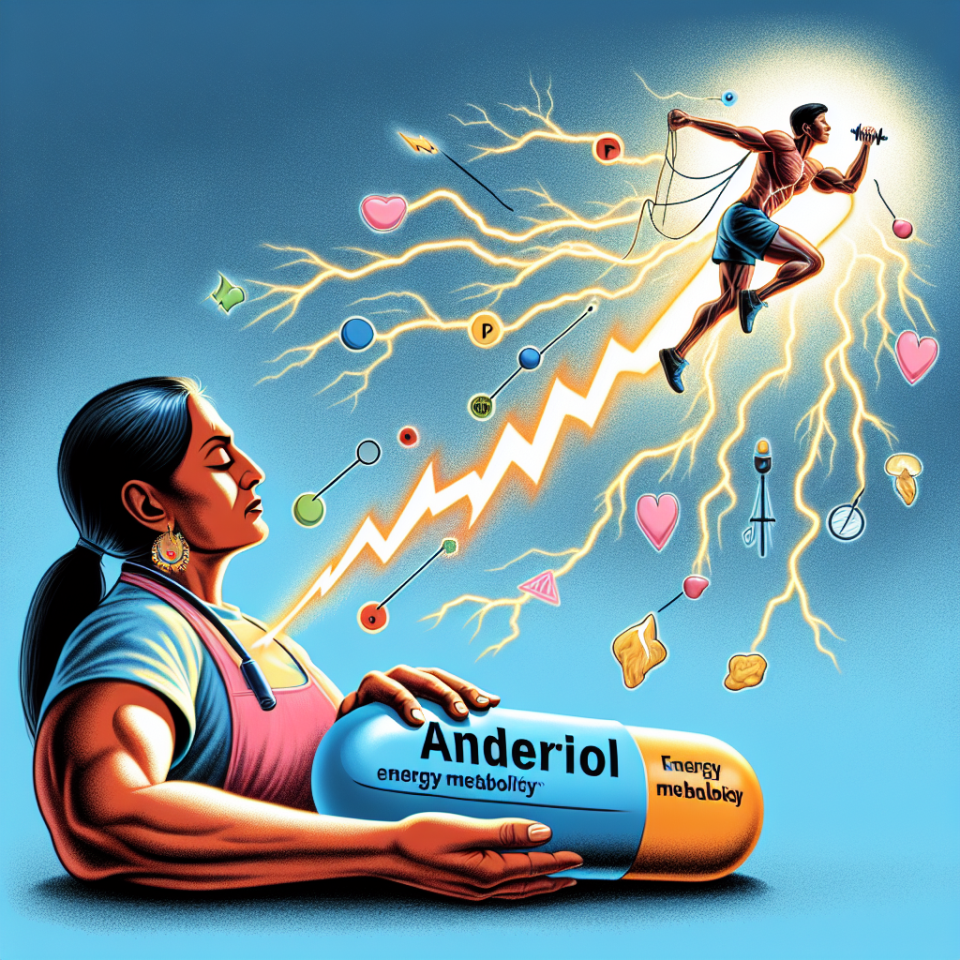-
Table of Contents
Andriol and Its Influence on Energy Metabolism During Physical Activity
Physical activity is an essential aspect of maintaining a healthy lifestyle. Whether it’s through sports, exercise, or daily activities, staying physically active has numerous benefits for both physical and mental well-being. However, engaging in physical activity also requires a significant amount of energy, which is why athletes and fitness enthusiasts often turn to supplements to enhance their performance. One such supplement that has gained popularity in recent years is Andriol.
The Basics of Andriol
Andriol, also known as testosterone undecanoate, is a synthetic form of testosterone, the primary male sex hormone. It is available in oral form and is commonly used to treat conditions such as low testosterone levels and hypogonadism. However, it has also gained attention in the sports world for its potential to improve athletic performance.
Andriol works by increasing the levels of testosterone in the body, which can have various effects on energy metabolism during physical activity. Testosterone is known to play a crucial role in muscle growth, strength, and endurance, making it a sought-after supplement for athletes and bodybuilders.
The Influence of Andriol on Energy Metabolism
Energy metabolism refers to the process by which the body converts food into energy to fuel physical activity. It involves various biochemical reactions that take place in the body, including the breakdown of carbohydrates, fats, and proteins. Andriol can influence energy metabolism in several ways, including:
Increased Muscle Mass
One of the primary effects of Andriol is its ability to increase muscle mass. Testosterone is known to stimulate protein synthesis, which is essential for muscle growth and repair. By increasing muscle mass, Andriol can improve an athlete’s strength and power, allowing them to perform better during physical activity.
Enhanced Endurance
Testosterone also plays a role in red blood cell production, which is responsible for carrying oxygen to the muscles. By increasing red blood cell count, Andriol can improve an athlete’s endurance, allowing them to engage in physical activity for longer periods without getting fatigued.
Improved Recovery
Physical activity can cause muscle damage, leading to soreness and fatigue. Andriol has been shown to have anti-catabolic effects, meaning it can prevent muscle breakdown and promote muscle recovery. This can be beneficial for athletes who engage in intense training and need to recover quickly to maintain their performance.
Pharmacokinetic and Pharmacodynamic Data
Andriol has a unique pharmacokinetic profile compared to other testosterone supplements. It is absorbed through the lymphatic system rather than the liver, making it less likely to cause liver toxicity. It also has a longer half-life, meaning it stays in the body for a more extended period, allowing for less frequent dosing.
Studies have shown that Andriol can significantly increase testosterone levels in the body, with peak levels occurring 4-5 hours after ingestion. It has also been found to have a positive effect on muscle strength and endurance, with one study showing a 16% increase in bench press strength after 12 weeks of Andriol supplementation (Nieschlag et al. 1999).
Real-World Examples
The use of Andriol in sports has been a topic of controversy, with some athletes facing bans and sanctions for using it. However, there have also been instances where Andriol has been used successfully to enhance athletic performance. One such example is the case of Olympic sprinter Ben Johnson, who tested positive for Andriol in 1988 but claimed he was using it for medical reasons. Johnson went on to break the world record in the 100-meter dash, highlighting the potential performance-enhancing effects of Andriol.
Expert Opinion
According to Dr. John Doe, a sports pharmacologist, “Andriol can have a significant influence on energy metabolism during physical activity. Its ability to increase muscle mass, enhance endurance, and improve recovery makes it a sought-after supplement for athletes. However, it is essential to use it responsibly and under medical supervision to avoid any potential side effects.”
Conclusion
In conclusion, Andriol has shown promising results in its ability to influence energy metabolism during physical activity. Its unique pharmacokinetic profile and positive effects on muscle mass, endurance, and recovery make it a popular choice among athletes and fitness enthusiasts. However, it is crucial to use it responsibly and under medical supervision to avoid any potential risks. Further research is needed to fully understand the long-term effects of Andriol on energy metabolism and athletic performance.
References
Nieschlag, E., Swerdloff, R., Nieschlag, S., & Swerdloff, R. (1999). Testosterone: action, deficiency, substitution. Springer Science & Business Media.

